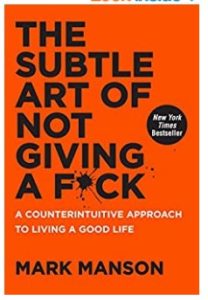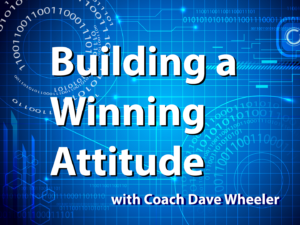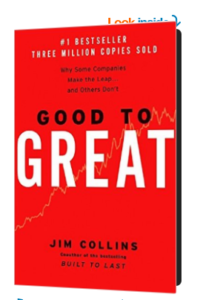 If you have not seen my previous Mental Toughness post: “Challenges & Problems”, check it out by clicking here. Now let’s learn how to think differently so you can solve your problems and avoid some problems altogether.
If you have not seen my previous Mental Toughness post: “Challenges & Problems”, check it out by clicking here. Now let’s learn how to think differently so you can solve your problems and avoid some problems altogether.
Let’s understand Problems
Mark Manson points out in his book, that our personal values and the standards we set for ourselves “determine the nature of our problems and the nature of our problems determines the quality of our life.” In other words, good problems = good life (and the opposite). Add to this the fact that we get (in terms of problems & results) what we accept based on the standards we set for ourselves and those around us.
Control the meaning of your problems…
Mark goes on to say, “Problems may be inevitable but their meaning is not. We get to control what our problems mean based on how we choose to think about them [and] the standard by which we choose to measure them.”
One man’s problem is another man’s dream.
Going back to our rich and poor example. The rich person might lose a million dollars in a day… but it is such a small part of their overall wealth that it means nothing. The poor person might misplace a dollar bill and it means everything to them because it is all that they have.
Problems have meaning and the good news is
that we get to choose that meaning.
What if the rich person chose to think that losing a million dollars was not a simple fluctuating in the stock market and was the start of financial ruin? The meaning of the loss could be ominous or inconsequential. Which one is right? Neither. Or maybe both. The point is that we CHOOSE what things mean for ourselves and very often it has more to do with our habitual thinking than the “reality” of the situation.
5 Counter-intuitive ways of thinking
Mark Manson offers 5 new “ways of thinking” which can help you become better at solving your problems and recognizing opportunities for personal growth. The 5 Ways or “New Value”are…
- Radical Responsibility
- Empower Uncertainty
- Embrace Failure
- Leverage Rejections
- Gain Perspective of Mortality
Radical Responsibility means taking responsibility for EVERYTHING in your life. It doesn’t mean that everything is your fault… just that you have the ability to respond to anything in your life. Everyone will encounter problems that are not their fault, but it is HOW you RESPOND that determines the quality of your life. What most people miss is the idea that we have much more control over our lives than we imagine. Unfortunately, most people just “go along” with whatever is expected and, as a result, they get mediocre (or worse) results. Bottom Line… Take Responsibility for your life. That’s a radical idea isn’t it?
Uncertainty is another opportunity for personal growth. If you already know all the answers, you won’t be searching for new ideas or new answers. If you adopt an uncertain approach, you are open to opportunities you would have missed. We should also keep in mind that there are things we don’t even know that we don’t know. Open the door to uncertainty.
Embrace Failure. We are all going to fail at one time or another. We can let it eat us up or we can see it as what it really is… a learning opportunity. Failure highlights our “blind spots” in ways that we rarely seek out. Think of failure as a gift… but don’t quit.
This might sound good, but what if you can’t even think of a potential plan of attack? What if the prospect of a HUGE failure is intimidating and you still don’t know where to start? What if it seems like you have already failed… before you are even “in the game”?
Lower the bar for failure… Do Something
Mark Manson explains a great way to lessen the anxiety associated with potential failure through the “Do Something” rule that he learned from one of his teachers. “If you are stuck on a problem, don’t sit there and think about it; Just start working on it. Even if you don’t know what you are doing, the simple act of working on it will eventually cause the right ideas to show up in your head.”
“Don’t just sit there.
Do Something.
The answers will follow.”
Mark adds, “Action isn’t just the effect of motivation; it’s also the cause of it.” Once you take action, you often find that the small successes provide motivation while the small failures provide ideas that point you into a productive direction. “If we follow the ‘Do Something’ principle, failure feels unimportant.”
So, start failing. Start small. Do Something. Do anything. As Nike says, “Just Do It.”
Leverage Rejection. Manson says, “We are defined by what we choose to reject.” For example, if we value something, we must reject what is not that something. To value X, we must reject non-X. What we reject defines our identity. If we don’t reject something we don’t stand for anything. Decide what you stand for. It will make your decisions clearer and keep your life aligned with your important values.
Gain Perspective from Mortality. We could all be hit by a bus tomorrow… but we rarely think about how short our life could be. In the timeline of the cosmos, we are a flash in the pan, a brief flicker in history so how much does it matter that someone cuts you off in traffic? Stoic philosophers would advocate to think about death at all times so we would appreciate our life more. Mark Twain once wrote, “The fear of death follows the fear of life. A man who lives fully is prepared to die at any time.”
Your own mortality is the ultimate “Big Picture” view and it helps put everything into perspective. Don’t deny your mortality… use it !
Which Problem is worth a F&ck?
Bottom line, you get to choose how you respond to the problems in your life, how you solve problems and even which problem you choose to tackle. Problems are a blessing and each new one gives us an opportunity to grow. What do you give a f*ck about?

 What does it take to become a winner? Many people talk about a “Winning Attitude” but how many actually practice it? How many of us even know what goes into a winning attitude?
What does it take to become a winner? Many people talk about a “Winning Attitude” but how many actually practice it? How many of us even know what goes into a winning attitude?
